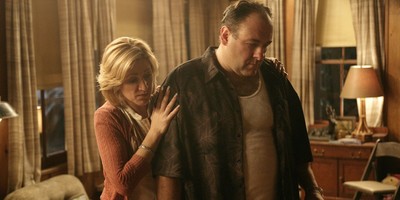With the celebration of Ronald Reagan's 100th birthday now in full swing, I find myself reflecting on the despair that so many of us felt at the midpoint of his first term in office. By "us," I mean those who had worked in GOP campaigns in 1980, felt the euphoria of Reagan's nomination and then worked in the House or Senate in those early days of the Reagan Revolution. But after two years in office, Reagan's approval ratings were in the tank. It seemed they would never rebound.
Readers must remember that although conservatives were on the rise in the early '80s, there was no Fox News to balance out a generally liberal media establishment. Reagan was pummeled by the then-"Big Three" TV networks on a nightly basis; and also by The New York Times and The Washington Post. In many ways, his situation had gone from one of great promise to one that looked likely to end his presidency after four short years.
What saved him? Well -- as he might start his own answer to the question -- his 1981 legislation that dramatically lowered marginal tax rates started to reap economic benefits during the second half of his first term. (It would continue for a generation.) That likely was the biggest factor in his resurgence. It took time to see America's double-digit inflation and high unemployment start to ebb after both had gone sky-high in the Jimmy Carter years.
No, I don't believe the fire hose of government spending by President Obama will have the same positive impact on the economy in the next few years that Regan's actions did in his time. Reagan's was a far less intrusive approach to bolstering the economy.
In fact, the Congressional Budget Office just came out with projections that even by 2012, unemployment will still be at or above 8 percent. But sometimes things can get so bad, such as in this Great Recession we have endured over the past few years, that any improvement can seem to be an economic miracle.
There are lessons from the past that Republican leaders must in some instances embrace and in other cases avoid like the plague.
Recommended
First, it's my opinion that were it not for the enthusiasm of the tea party movement, Republicans would not have seen anywhere near as big of a landslide victory in the U.S. House or in state legislatures that they enjoyed in last November's elections. I believe that because of the missteps of President Obama and the Democratic Congress, we would likely have seen the House go Republican anyway. But it was the tea party rallies that started to give Republicans the momentum that prompted a massive turnout of Republican voters. It would serve the Republican establishment to keep that in mind.
This is not the first time that a powerful group has emerged within the GOP. By 1988, the Christian Coalition had become a power to reckon with. And in many instances, the coalition's local leaders stripped establishment Republicans from their positions in elected office, and within the GOP.
At first, leaders like George H.W. Bush had great difficulty connecting with these evangelical voters, mostly due to his more reserved Episcopalian upbringing. There was disorder in the party. The only way to end it was by bringing members of the coalition into positions of leadership.
It was somewhat disconcerting that Rep. Michele Bachmann felt compelled to deliver a separate "tea party" response to the State of the Union Address this past week. But it is my guess that the real source of her desire to do so is that the GOP House leaders are not viewed by members like Bachmann as being serious players. She is.
Republicans must avoid pitfalls. It's fine to talk about compromise as long as the compromise doesn't fly in the face of conservative voters' views. In his first term, after having said, "Read my lips, no new taxes," as a candidate, President Bush 41, believing it to be a necessary move, compromised with Democrats to raise taxes. It was a politically fatal error.
We must remember that President Obama comes across as likeable, whatever his politics may be. And if the economy starts to percolate, Republican leaders force tea party candidates to feel like second-class citizens, and the GOP compromises with the Democrats too much, the Republican voting base will not be enthused in 2012. That could leave the key swing voters -- independents -- to put the White House in President Obama's hands for another four years.

























Join the conversation as a VIP Member